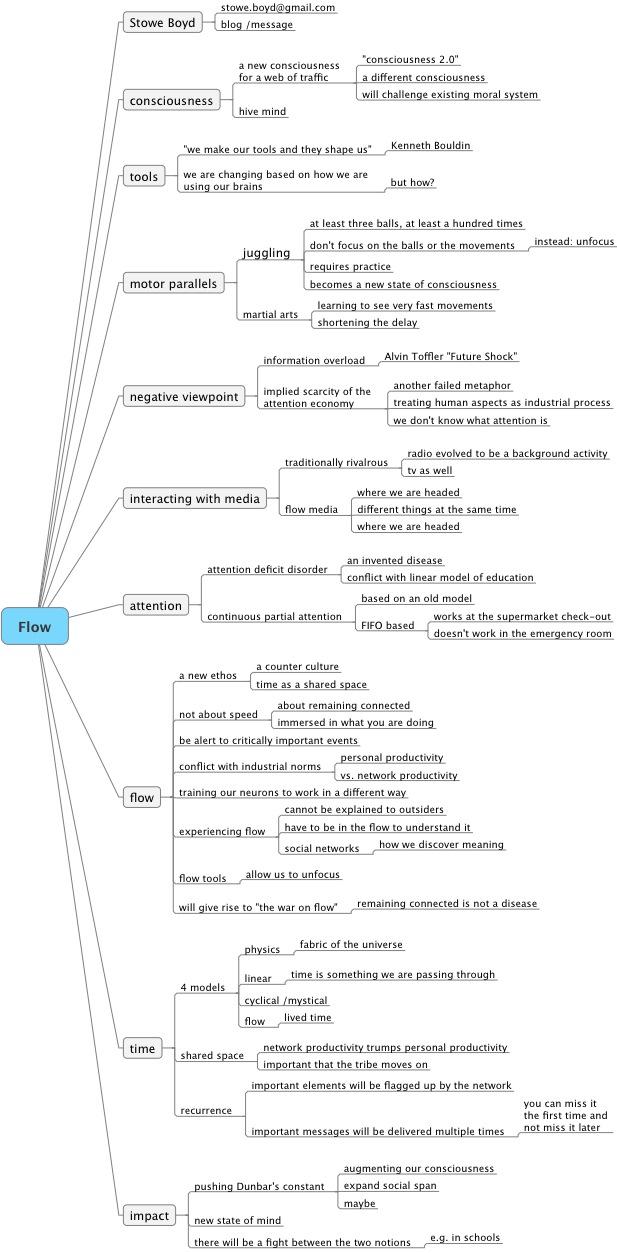| Flow | 2007-06-03 15:35 2 comments |
| by Flemming Funch How does one best capture what one can take away from a lecture? One can just somehow process it and internally organize it as one hears it, I suppose. Or one can count on being able to watch the video later. Or one can take notes. But how? I unfortunately missed Stowe Boyd's talk on Flow, a new consciousness for a web of traffic, in order to be in a conversation about owning one's learning path. But Lars Plougmann made his notes in the form of a nice mind map, which you can see below. And when Stowe puts up his slides, I guess I can piece the point together. Mind maps is a good way of keeping notes. [...Later] Video of Stowe's presentation here. 
|